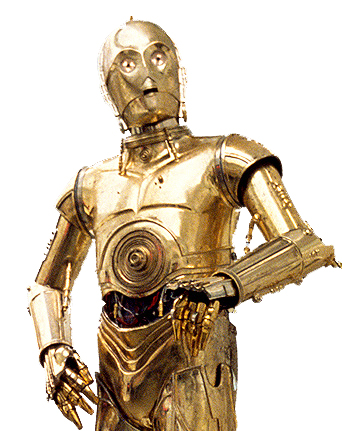We have all heard of Artificial Intelligence - there are computers out there that are programmed to enter chat rooms and learn from the the words spoken to get a better understanding of proper responses. A.I. they are called and even though they are not yet up to C-3PO standards, they are coming along quite nicely.
But this is not a blog about computers. This is a blog about mythology. So what about artificial mythology. Well, it seems that this predates artificial intelligence. The correct term is mythopoeia and was coined by Tolkien, although it predates him as well.
The idea is this. You are an author and you wish to create a world in which there are gods and goddesses, monsters and magic. In order to make it look good, you decide to create a whole pantheon of gods and goddesses. You develop rules for how magic will be able to work and all that stuff. Voila! You have created an artificial mythology. Tolkien is most famous for this for his Middle Earth stories. He is not, my precious, the only one to do this.
I found one source that puts the first mythopoeia at Pherecydes of Syros, written in the 6th century BC. Not having read it myself, I don't know for certain. But apparently it takes the Greek gods and kind of mutates them for his own purposes. I believe the main god was Zas. Maybe someone who has read this can leave a comment further explaining this work.
Today, we have several of created worlds like Star Wars, Dragon Lance, and World of Warcraft. However, these do not fit the definition of mythopoeia despite their well ordered worlds and belief systems. The reason is that a mythopoeia must take an existing mythology and modify it in an effort to bring out mythology in modern culture. Tolkien took Norse and Christian beliefs. Davide Gemmel took Celtic beliefs.
Campbell says that the modern world has need of these to fill the gap needed by society for a mythology. We no longer have it so we fill this gap with mythopoeias and comic books and video games.
So what are your thoughts? On the one hand, it is nice to think that mythology is that important that we need these fake versions to replace our lack of them. On the other hand, does it cheapen mythology to say it can be replaced by Tolkien?



2 comments:
So I guess this takes us back to defining mythology. Maybe I'm just a bad classicist/anthropologist, but I've never heard a definition of mythology that I'm happy with.
Obviously, the context in which Greek mythology existed in the many times and places it did in the ancient world is totally totally different than here and now.
So what makes the myths artifical? That no one really believes in them? That they're not rooted in history? We DO have those - gospel for Christians, science history for lots of people (Einstein's math class), national history myths (e.g., Johnny Appleseed and George Washington), and Greek myths for neo-Hellenists. "Artificial mythology" doesn't replace those myths, it is something different.
I really need to re-read Campbell, but my sense is that we don't fill our worlds with novels and video games and comic books because we lost access to Real Myths, but because the technology didn't used to EXIST for all those things. Storytelling didn't used to be just religious, and we have records to indicate people just made up stories, too. Take the story told by Aristophanes in Plato (you know, the one about the stuck-together people).
For me, the fact that we love stories and constantly seek out new worlds to escape to, and fill them with their own mythologies, only speaks to how incredibly important it is to humans to HAVE those stories to structure our lives. Sharing stories with other people gives us common ground, whether its a bunch of nerds playing D&D or Call of Cthulhu together or learning the holy books of another religion or learning the Olympian gods in 6th grade.
What do you think?
I think that is a good point. I have struggled with what is the true definition of mythology and I have come up short often. I used to just go with the idea that mythology is a religion no longer believed, but that doesn't even come close to working. Even if you leave out Allah, Jehovah, and Jesus, you still have people who follow the Norse myths, wiccans who may follow Artemis, and there is that whole church of Zeus in California.
I do like your viewpoint that stories are part of mythology and probably have been in ancient times as well. I am sure that the guideline is something that was believed and had some worship involved at sometime or another. National history myths would fall under legends, maybe. The line is so blurred in many cases, I am happy without trying to set up a distinct line to say which is which.
However, I have come up with a definition for what is mythology that I think works great. For the purpose of Bubo's Blog - mythology is whatever I deem it to be. Problem solved!
Post a Comment